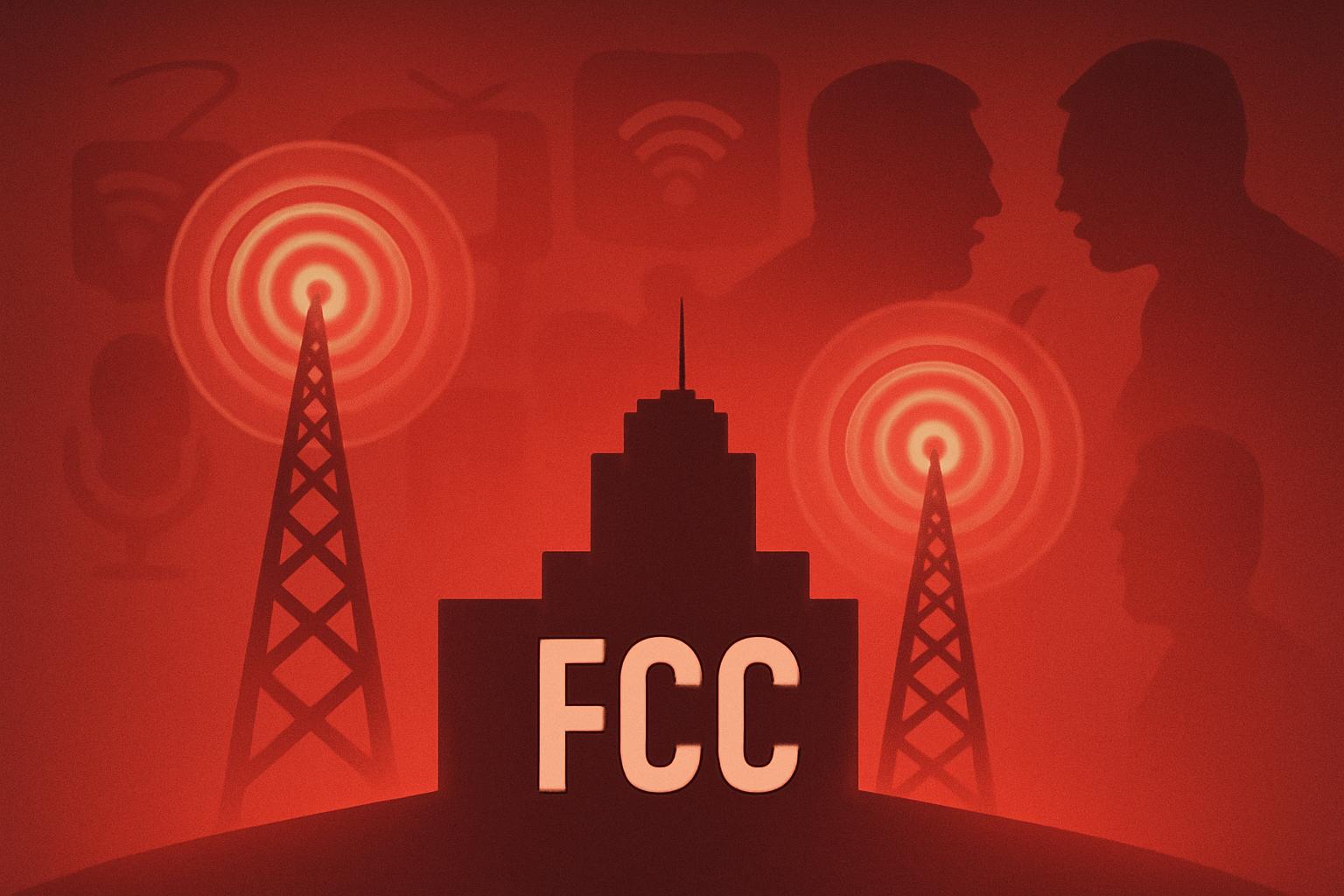Trump Proposes Revoking Broadcast Licenses of Networks Critical of Him
On Thursday, President Donald Trump suggested that broadcast television networks airing content perceived as hostile toward him could face revocation of their federal licenses. This statement came amid heightened tensions following ABC’s suspension of its late-night program, Jimmy Kimmel Live!, due to controversial remarks made by host Jimmy Kimmel linking the alleged killer of conservative activist Charlie Kirk to the MAGA movement.
Context: FCC Chairman Signals Possible Regulatory Action
Federal Communications Commission (FCC) Chairman Brendan Carr, nominated by Trump, had earlier indicated that ABC’s broadcast license might be at risk if the network did not address the situation involving Kimmel’s comments. Speaking aboard Air Force One, Trump remarked, “I have read someplace that the networks were 97% against me, again, 97% negative, and yet I won easily, all seven swing states,” referring to his 2024 election victory.
Trump asserted that networks provide predominantly negative coverage and suggested, “I would think maybe their license should be taken away,” adding that the decision ultimately rests with FCC Chairman Carr.
Accusations of Media Bias and Political Partisanship
Trump criticized late-night hosts, including Kimmel and Stephen Colbert of CBS, for their critical commentary, claiming that networks have not featured conservative voices in years. He further accused the broadcast networks of functioning as extensions of the Democratic Party, stating, “They’re licensed. They’re not allowed to do that. They’re an arm of the Democrat party.”
Chairman Carr, in a separate interview with CNBC’s Squawk on the Street, indicated ongoing efforts to reshape the media landscape in the wake of Trump’s election, stating, “We’re not done yet” with changes in “the media ecosystem.” Trump praised Carr, calling him a “patriot” and “a tough guy.”
Broadcast Licenses and Regulatory Framework
Broadcast television networks such as ABC, CBS, NBC, and Fox require licenses from the FCC to operate because their signals are transmitted over the airwaves and are accessible free to viewers with an antenna. This regulatory framework contrasts with cable networks, which are subscription-based and do not require FCC licenses for content distribution.
The FCC’s authority to regulate broadcast licenses allows it to enforce rules designed to ensure broadcasters serve the public interest. However, any move to revoke licenses based on political content would raise significant legal and constitutional questions concerning freedom of speech and press.
— CNBC’s Lillian Rizzo contributed to this report.
FinOracleAI — Market View
President Trump’s remarks signaling potential FCC intervention against broadcast networks critical of him introduce regulatory uncertainty into the media sector. The threat to revoke broadcast licenses, though speculative at this stage, could heighten concerns over political interference in media regulation, potentially impacting network valuations and advertising revenues.
Investors should monitor FCC actions closely, as any formal regulatory moves could provoke legal challenges and public backlash. The situation also underscores ongoing tensions between the administration and media entities, which could influence broader market sentiment toward media and communications stocks.
Impact: negative













